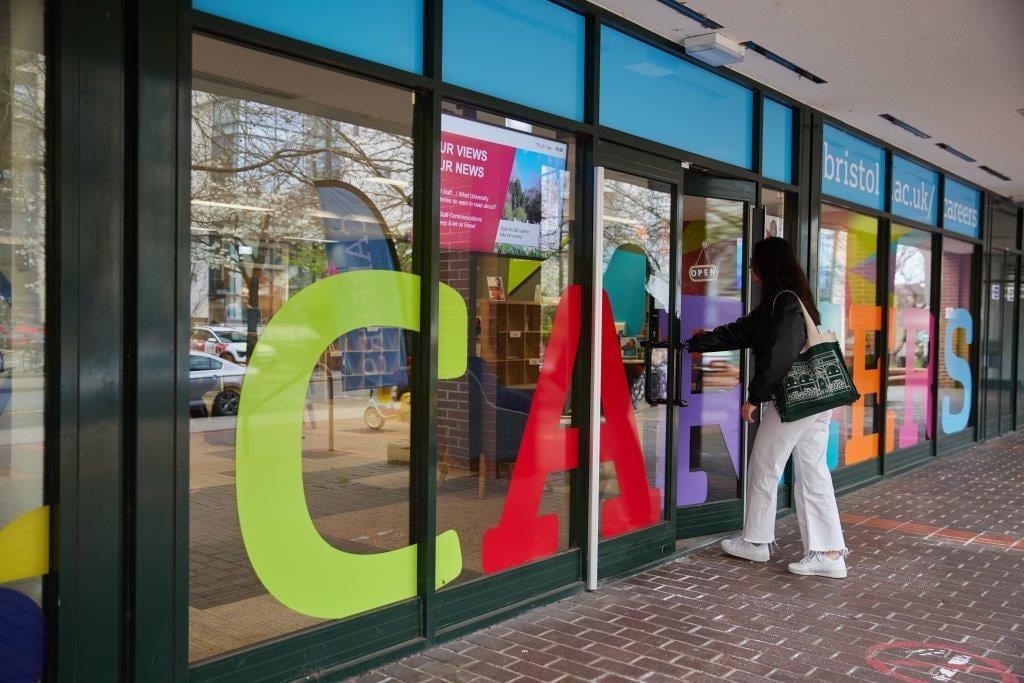Dr Chad McDonald completed his PhD in History at the University of Bristol in 2019. He’s now a Senior Academic and Study Skills Tutor at Manchester Metropolitan University. This role has seen him shortlist hundreds of applications and interview dozens of candidates. In this blog he reflects on his post-PhD career and offers advice for those looking to move into third-space roles in universities.

“As I was preparing to submit my thesis in the summer of 2019, I was also trying to plan for what would come next. This involved balancing my imminent thesis deadline against job hunting. Juggling these demands was tough!
One thing that made it easier, though, was that I’d planned for what I wanted to do next throughout my PhD. Here are some key points to consider during your PhD to support your job search (no matter how imminent it may be!)
Job alerts are your friend.
If you set them up, job alerts tell you when job ads are posted on websites. This takes a lot of the stress and strain out of searching for available positions. It lets you to focus on more important and time-consuming tasks during your job search.
In terms of specific websites, I’d recommend setting alerts for jobs.ac.uk. That’s the place where third-space roles are most likely to be listed. You can also set up alerts for specific university job boards if those are places where you’d particularly like to work.
I’d also suggest looking for organisations connected to roles you’re interested in. For instance, ALDinHE is the professional network for Learning Developers in Britain. Organisations like this provide training and resources, which can help you get more of a sense of different jobs.
Most doctoral researchers won’t continue into academic positions.
This fact was emphasised to me throughout my time studying at Bristol. It meant that from day one of my PhD I was conscious to explore my options.
Throughout my PhD, I kept a list of the types of roles that genuinely interested me. I also tracked the kinds of work I wouldn’t want to do.
I explored potential roles by reading job descriptions to get a general sense of their focus. This helped me spot requirements for jobs, and then develop my skills accordingly. For example, several jobs I found asked candidates to have Associate Fellowship of Advance HE. So I made sure to achieve this status during my PhD studies.
The key point here is that it’s best to undertake this research throughout your PhD. That way you can make sure you’re tailoring your doctoral experience in line with your career plans.
Careers take time.
Careers don’t materialise overnight! The word itself refers to the entirety of one’s working life, as well as a specific vocation. It’s therefore important to be preparing for your career throughout your PhD studies, so that you can maximise the training and networking opportunities available to you.
In terms of applying for specific roles, it’s tricky to advise on timescales. Some roles will suggest indicative start dates in their adverts, while others will be more open. As a rough guide, I’d start applying for third-space roles from about 4 to 6 months before you intend to start in post. Remember to factor your thesis submission date into your planning.
“Go with the flow” (within reason!)
Finding your first job after your PhD isn’t always straightforward. For example, my first post-PhD position was advertised as a maternity cover for 9 months without any chance of extension. The length of the contract was emphasised at my interview, and again when I was offered the position. It seemed clear it would last for 9 months, and not a single day longer.
Yet universities are dynamic places and—long story short—the position eventually changed into an open-ended/permanent contract, so I ended up staying for 18 months in total.
I then moved to my current university. An opportunity for promotion became available when I had only been in my new role for about 3 months. I’d just passed my probation and—putting on a show of confidence I wasn’t entirely feeling—applied for the position to demonstrate my commitment to progress. To my surprise, I was successful!
The key point here is that you shouldn’t prematurely rule yourself out of opportunities.
PGRs are well suited to work in the “third space”.
Many of the jobs that interested me sat within the “third space” of universities. This refers to jobs that “blend” elements of academic and other roles. They sit between academic and professional services domains, fitting neatly into neither.
These roles are sometimes known as“alt-academic” or “academic-adjacent” careers. They include jobs in many areas, such as research development, careers, and libraries. See Celia Whitchurch’s work for an introduction to the “third-space professional” concept.
Given their hybrid nature, third-space roles vary in scope, purpose, and even names. My role for example is part of a profession that has emerged over the last 20 years or so: Learning Development.
The profession/discipline is called Learning Development by those working in it. Job roles, though, have many different names at different universities. You might think to search for titles like “learning developer”, or “learning specialist”. But some universities use “academic skills tutor”, “study skills adviser”, or “effective learning consultant” to refer to the same type of job.
Similar job titles can also be used for totally different roles. For example, lecturerships traditionally have mixed research and teaching responsibilities. But some lecturers only conduct research, or only teach.
The lesson is not to rely on job titles to find or understand available roles. The real key to understanding a role is digging into the job description.
I hope you find this advice useful in navigating your transition from PhD to your future career!”
Over 50% of UK PhD grads leave academia within 3.5 years. If you’re interested in exploring options beyond academia, head to the PGR Compass, which pulls together lots of career resources to help you on your journey – including thinking about possibilities, networking, and finding work experience.

